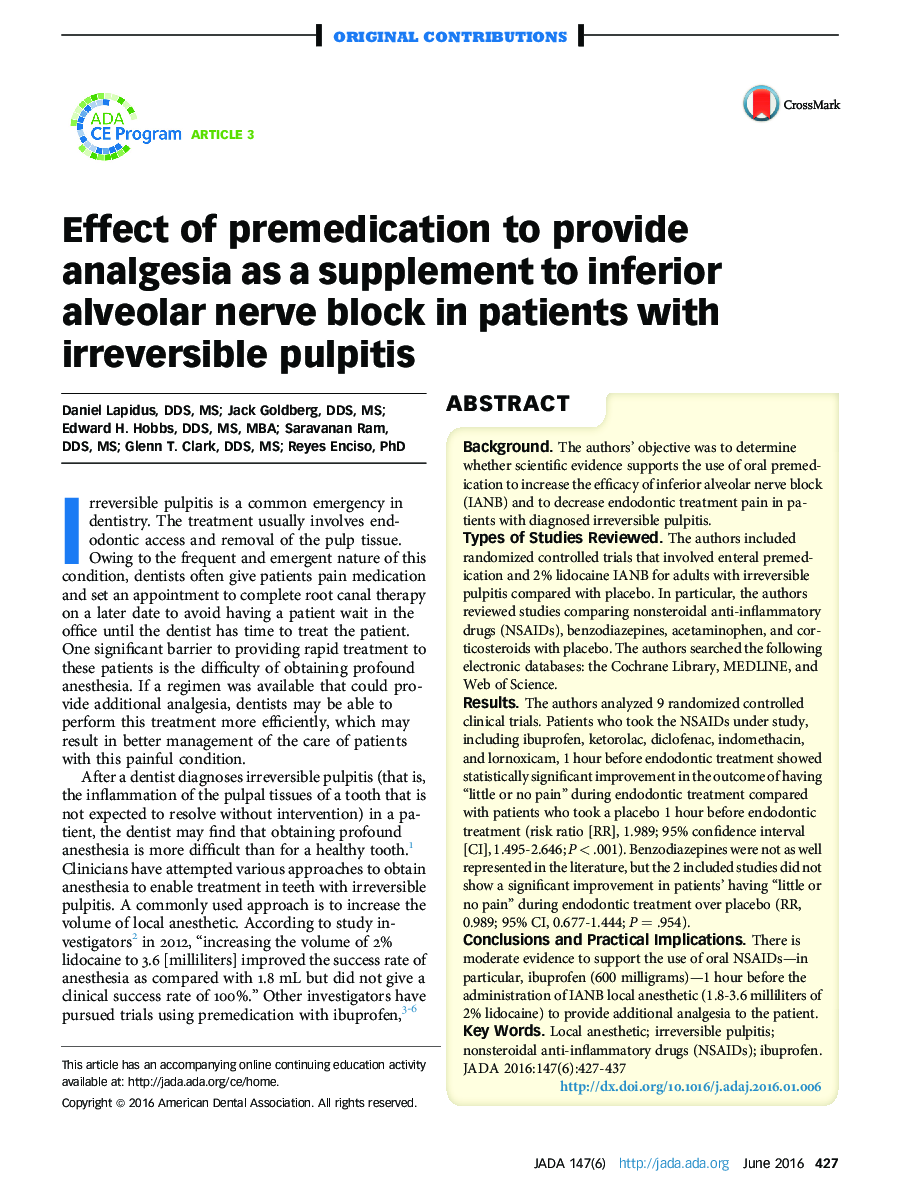| Article ID | Journal | Published Year | Pages | File Type |
|---|---|---|---|---|
| 3136315 | The Journal of the American Dental Association | 2016 | 11 Pages |
BackgroundThe authors’ objective was to determine whether scientific evidence supports the use of oral premedication to increase the efficacy of inferior alveolar nerve block (IANB) and to decrease endodontic treatment pain in patients with diagnosed irreversible pulpitis.Types of Studies ReviewedThe authors included randomized controlled trials that involved enteral premedication and 2% lidocaine IANB for adults with irreversible pulpitis compared with placebo. In particular, the authors reviewed studies comparing nonsteroidal anti-inflammatory drugs (NSAIDs), benzodiazepines, acetaminophen, and corticosteroids with placebo. The authors searched the following electronic databases: the Cochrane Library, MEDLINE, and Web of Science.ResultsThe authors analyzed 9 randomized controlled clinical trials. Patients who took the NSAIDs under study, including ibuprofen, ketorolac, diclofenac, indomethacin, and lornoxicam, 1 hour before endodontic treatment showed statistically significant improvement in the outcome of having “little or no pain” during endodontic treatment compared with patients who took a placebo 1 hour before endodontic treatment (risk ratio [RR], 1.989; 95% confidence interval [CI], 1.495-2.646; P < .001). Benzodiazepines were not as well represented in the literature, but the 2 included studies did not show a significant improvement in patients’ having “little or no pain” during endodontic treatment over placebo (RR, 0.989; 95% CI, 0.677-1.444; P = .954).Conclusions and Practical ImplicationsThere is moderate evidence to support the use of oral NSAIDs—in particular, ibuprofen (600 milligrams)—1 hour before the administration of IANB local anesthetic (1.8-3.6 milliliters of 2% lidocaine) to provide additional analgesia to the patient.
